Mateusz Piskorski | |
|---|---|
 | |
| Member of Sejm | |
| In office 25 September 2005 –4 November 2007 | |
| Personal details | |
| Born | 18 May 1977 Szczecin, Poland |
Mateusz Andrzej Piskorski (born 18 May 1977) is a far-right Polish politician and publicist.
Mateusz Piskorski | |
|---|---|
 | |
| Member of Sejm | |
| In office 25 September 2005 –4 November 2007 | |
| Personal details | |
| Born | 18 May 1977 Szczecin, Poland |
Mateusz Andrzej Piskorski (born 18 May 1977) is a far-right Polish politician and publicist.
In 2001, he graduated in Political Science from the University of Szczecin. In January 2011, he received his doctorate at the Faculty of Political Science and Journalism of Adam Mickiewicz University in Poznań for a dissertation was titled "Samoobrona in Polish political party system".[ citation needed ]
In 2002, he became a lecturer at the University of Szczecin.[ citation needed ] He worked there until 2005. He also lectured at the Collegium Balticum and the High School of Pedagogy in Szczecin and, in 2007, returned to the University of Szczecin.[ citation needed ] In 2008, he was elected a president of the "Society for Polish–Venezuelan Partnership".[ citation needed ] He also became the president of the board of Nord Media Press and worked at polish NBC.[ citation needed ] From December 2009 to December 201, he was deputy director of Polish Radio Euro.[ citation needed ] He was a lecturer at the Jan Długosz University in Częstochowa.[ citation needed ]
Piskorski was a co-founder in 2007 of the European Center of Geopolitical Analysis (Europejskie Centrum Analiz Geopolitycznych - ECAG), a pro-Eurasianism Polish thinktank dealing with issues of geopolitics. [1]
As a student, Piskorski joined the Polish People's Party.[ citation needed ] He was also active in various societies promoting the idea of pan-Slavism.[ citation needed ] He was an activist of the far-right neo-pagan "Niklot" society [2] and worked in organizations with a popular-patriotic profile, such as the National-Democratic Party.[ citation needed ] An influence on his political activities was the ideas of Polish political philosopher Jan Stachniuk (leader of the pre-war society "Zadruga"). Those ideas combine on the one hand passionate patriotism, and on the other consequent anti-capitalism and anti-globalism. In 2000, he travelled to Russia at the invitation of Pavel Tulaev to meet with other far-right and pan-Slavic activists there. [3] He maintains close contacts with continentalists from all over Europe who consistently argue for "de-Americanisation of the Old Continent" and for the construction of Euro-continental cooperation "from Lisbon to Vladivostok".[ citation needed ]
In 2000, Piskorski quit the People's Party and in 2002 joined the Self-Defence of the Republic of Poland party to become the assistant to Member of Parliament Jan Łączny. He quit his PhD in 2005 to devote himself to politics.[ citation needed ] In 2005, he also became one of principal members of Andrzej Lepper's electoral committee during the Polish 2005 presidential election.[ citation needed ]
In the Polish 2005 parliamentary election, Piskorski successfully ran for the Sejm from the Szczecin constituency. As a deputy. he was a vice-chairman of the Reprivatization Committee and worked in the Foreign Affairs Committee and the Statutory Committee. He also represented Polish Parliament in the Assembly of Western European Union. The following year, he also ran for president of Szczecin in the 2006 local elections, but withdrew before the elections and supported a Law and Justice candidate instead. [4] He failed to defend his seat in the Polish 2007 parliamentary election and failed to return to the parliament in the 2011 parliamentary election (this time running as a candidate of Polish Labour Party (Sierpień 80)). [5]

In February 2015, Mateusz Piskorski founded a new political party called "Zmiana" ("Change"), being a political platform that combines left-wing anti-capitalist views with anti-imperialist, pacifistic social policies. At the founding meeting, were representatives of the self-proclaimed Novorossiya to inform the Polish public about their views on the Russo-Ukrainian War. [6] [7] [8] Piskorski and his wife Marina Klebanovich received funding from Russian actors through "The International Agency for Current Policy". Klebanovich worked as a coordinator for the Agency's operations in Europe. [9]
In May 2016, shortly before the NATO summit, Piskorski was detained by the Internal Security Agency on the charges of "cooperation with Russian intelligence services, meeting intelligence officers and undertaking operational tasks from them as well as accepting payments". [10] Sources internal to the Zmiana party have described the detention as: “an attempt to intimidate those whose views on foreign, domestic and socioeconomic policy differ from those of the government”. [11] UN Working Group on Arbitrary detentions has asked to release him, in 2018. [12] On 16 May 2019 Piskorski was released on bail. Both rightists such as Janusz Korwin-Mikke and Grzegorz Braun and leftists such as Piotr Ikonowicz supported his release. [13]
Mateusz Piskorski, as an expert and political scientist, participated and co-organized a number of "election monitoring missions", including elections unrecognized by OSCE and UN, since 2007 organised by the European Center of Geopolitical Analysis (ECAG): [14]

Andrzej Zbigniew Lepper was a Polish politician, Deputy Prime Minister, Minister of Agriculture, and the leader of Self-Defence of the Republic of Poland political party.

Self-Defence of the Republic of Poland is a nationalist, socialist, populist, and agrarian political party and trade union in Poland. The party promotes agrarian socialist and Catholic socialist economic policies combined with a left-wing populist, anti-globalization and anti-neoliberal rhetoric. The party describes itself as left-wing, although it stresses that it belongs to the "patriotic left" and follows Catholic social teaching. The party is sympathetic to Communist Poland, which led political scientists to label the party as neocommunist, post-communist, and far-left.
League and Self-Defense was a short-lived Polish political alliance between the left-wing populist Self-Defense of the Republic of Poland (Samoobrona) and the national conservative Christian right League of Polish Families (LPR) in July 2007. The alliance was directed against right-wing populist Law and Justice (PiS) that first formed a coalition with both parties, but then gradually marginalized them and shuffled away their ministers. The coalition was marked by mutual distrust as the parties had radically different outlooks, tied together by Euroscepticism, opposition to capitalism and aversion to PiS. The coalition was only polling 6%, and was dissolved by September 2007, shortly before the election. In the 2007 Polish parliamentary election, both LPR and Samoobrona failed to reach the 5% electoral threshold, losing all their 92 Sejm and 10 Senate seats. The downfall of both parties is considered to have been caused by PiS appropiating their political rhetoric.

Patriotic Self-Defence was a minor political party in Poland. The party was founded in September 2006 by former members of the Self-Defence of the Republic of Poland, who left the party following an argument with the leader of Self-Defence Andrzej Lepper. The party ran in the 2007 Polish parliamentary election, where it tried to take votes from their former party by using a similar name, logo and political program. Ultimately, the party's electoral lists were only accepted in one electoral district. The party won 0.02% of the nationwide vote. It disbanded in 2013.
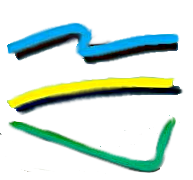
The Party of Regions was a left-wing Polish non-parliamentary political party created in November 2007 and registered in February 2008. The Party of Regions was created by former members of Self-Defence and the Democratic Left Alliance after the parliamentary election in 2007, when Self-Defence support collapsed to far less than the 5% electoral threshold giving them no seats in the new legislature. Founders of the grouping included Krzysztof Filipek, Danuta Hojarska and Bolesław Borysiuk. For failure to disclose their financial records for the year 2015, they were struck off in early 2017.
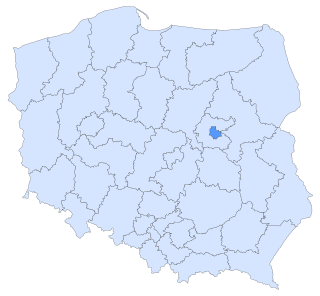
Warsaw I, officially known as Constituency no. 19, is one of the 41 constituencies of the Sejm, the lower house of the Parliament of Poland, the national legislature of Poland. The constituency was established as Constituency no. 1 in 1991 following the re-organisation of constituencies across Poland. It was renamed Sejm Constituency no. 19 in 2001 following another nationwide re-organisation of constituencies. It is conterminous with the city of Warsaw. Electors living abroad or working aboard ships and oil rigs are included in this constituency. The constituency currently elects 20 of the 460 members of the Sejm using the open party-list proportional representation electoral system. At the 2023 parliamentary election it had 1,993,723 registered electors.
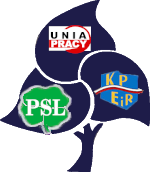
The Social Alliance was an electoral coalition created for the 1998 Polish local elections. Formed on 27 June 1998, the Social Alliance included the Polish People's Party along with its smaller left-oriented party partners, such as the Labour Union, the National Party of Retirees and Pensioners, the Self-Defence of the Republic of Poland and few members of Alliance of Democrats (Poland). The party represented the "independent left" that challenged the anti-communist and pro-communist dichotomy of Polish politics while maintaining a strongly leftist profile inspired by pre-WW2 socialist and agrarian movements. It protested against the capitalist reforms carried out in Poland such as austerity, criticizing them for creating massive wealth inequality. Nevertheless, the coalition cooperated with the post-communist Democratic Left Alliance as well as the Polish Socialist Party.
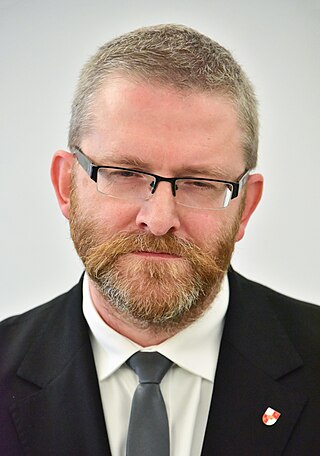
Grzegorz Michał Braun is a Polish politician who has served as a member of the Sejm for Rzeszów and as Chairman of the Confederation of the Polish Crown since 2019.

Mateusz Jakub Morawiecki is a Polish economist, historian and politician who served as the prime minister of Poland between 2017 and 2023. A member of the Law and Justice (PiS) party, he previously served in the cabinet of prime minister Beata Szydło as deputy prime minister from 2015 to 2017, Minister of Development from 2015 to 2018 and Minister of Finance from 2016 to 2018. Prior to his political appointment, Morawiecki had an extensive business career.

Szymon Franciszek Hołownia is a Polish politician and television personality currently serving as Marshal of the Sejm since 13 November 2023. From 2008 to 2019 he co-hosted Mam talent!, the Polish version of Got Talent, together with Marcin Prokop. He was an independent presidential candidate in the 2020 elections, coming in third place in the first round of the elections. He is the leader of the Poland 2050 political party.

The Union of European Democrats is a liberal political party in Poland. It is led by Elżbieta Bińczycka.

Presidential elections were held in Poland on 28 June 2020. As no candidate received a majority of the vote, a second round was held on 12 July, in which incumbent president Andrzej Duda, running with the support of Law and Justice, faced off against Civic Platform vice-chairman and Mayor of Warsaw Rafał Trzaskowski. In the second round Duda was re-elected for a second term with 51% of the vote, becoming the first incumbent to win re-election since Aleksander Kwaśniewski in 2000.

Anton Volodymyrovich Shekhovtsov is a Ukrainian political scientist, academic and writer. He is known for his writings on the European radical right and in particular its connections to Russia. He is the editor of the Explorations of the Far Right book series at ibidem-Verlag and sits on the board of the open access journal Fascism: Journal of Comparative Fascist Studies.

Rafał Kazimierz Trzaskowski is a Polish politician and the current city mayor of Warsaw. He is also a political scientist specializing in European studies.
The Civic Coalition is a catch-all political alliance currently ruling in Poland. The alliance was formed around Civic Platform in opposition to the then-ruling Law and Justice (PiS) party.
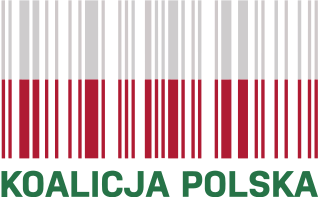
The Polish Coalition is a political alliance in Poland. It is led by the Polish People's Party.

The 2023 Polish parliamentary election took place on Sunday, 15 October 2023, per the Polish Constitution. Seats in both the lower house, the Sejm, and the Senate were contested. At the polls, a referendum - containing four questions concerning economic and immigration policy of the government - was also voted on.

The AGROunion is a left-wing agrarian socialist political movement in Poland formed by Michał Kołodziejczak. AGROunia criticizes the actions of current politicians in relation to the state of agriculture in Poland and organizes agricultural protests and information campaigns. The party declares to be built on agrarian socialist ideals and to have taken inspiration from the left-wing nationalist Samoobrona movement, Fighting Solidarity, as well as pre-war agrarian movements such as Polish People's Party "Wyzwolenie". Officially registered in 2022, the party became a socialist party with agrarian and Catholic overtones, with the leader of the party stating in 2022 that "faith, tradition, and Saint Mary herself are all elements of socialism for me". The party denies the labels of populism and nationalism.
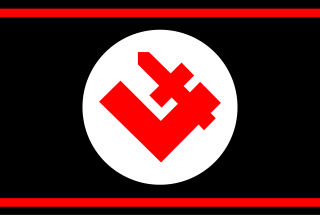
Falanga is a Polish national radical organization founded in January 2009. It is currently led by the former coordinator of the Masovian Brigade of the National Radical Camp (ONR), Bartosz Bekier.
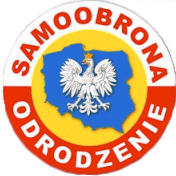
Self-Defence Rebirth is a Polish political party founded by the former Self-Defence of the Republic of Poland activists. The party was founded by the former lawyer of Andrzej Lepper, Henryk Dzido, who split off from the main Self-Defence party following numerous scandals and the electoral collapse of Samoobrona. Self-Defence Rebirth was also created over concerns that Samoobrona might form a coalition with the right-wing League of Polish Families. Zbigniew Witaszek is one of the key activists of the new party. The party describes itself as Catholic socialist, agrarian socialist, Soft Eurosceptic and left-wing.
{{cite web}}: CS1 maint: multiple names: authors list (link){{cite journal}}: Unknown parameter |agency= ignored (help){{cite journal}}: Unknown parameter |agency= ignored (help)